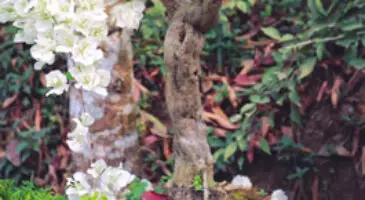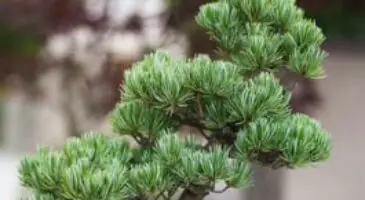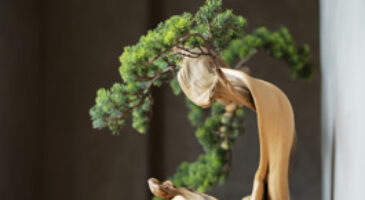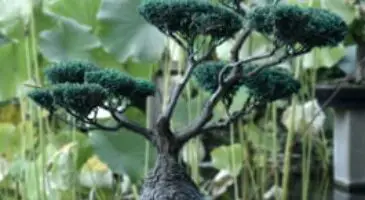Table of Contents
Coffee grounds’ versatility applies in gardening that they can be fertilizers or even soils to some types of trees. Yet, are coffee grounds good for bonsai trees? After all, it’s rare for us to see the application of coffee grounds in bonsai trees.
Some people say coffee grounds’ high acidity levels make them only work for acidity-loving plants. Some others say that the coffee grounds’ richness in nitrogen can help in producing nutrient-rich composts for your plants. Bonsai trees don’t belong to the exception.
Before we answer the question in this article, which is “Are coffee grounds good for bonsai trees?”, let us see if all trees like coffee grounds or not.
Do all trees like coffee grounds
Coffee grounds don’t only come from diverse origins. The origins produce different kinds of coffee bodies, acidity levels, and more. Such situations happen because the coffee grounds’ origins have different characteristics in their lands, terrains, trees, and other plants.
Since trees and other plants also have different characteristics, we can’t say that all trees will prefer coffee grounds. One thing is that coffee grounds add nutrients to the composts, which make them great for nurturing the growth of plants that are on soils that contain lesser amounts of compost.
Another positive aspect that you may get from using coffee grounds to support trees’ growth is, they make excellent pest repellent. Sometimes, they can prevent cats that poo on your trees’ soils. Coffee grounds also promote friendliness to the environment, are organic, and are safe to use.
At least, some trees such as willow oaks and beech trees can sustain coffee grounds more than other trees. We’ll discuss more the types of trees that love coffee grounds in the next point.
What trees like coffee grounds
Willow oaks and beech trees are some trees that prefer soils with acidity levels. Thus, soils with some coffee grounds components are the types of soils they prefer.
Willow oaks are some of the tallest trees that are non-poisonous but need sunlight apart from soils with a slightly high acidity level. When placed in high-acid soils, willow oaks can grow in moderate percentages compared to other trees.
Meanwhile, beech trees are the trees that tolerate shades rather than sunlight. These trees are flexible to grow if, and only if, the soils are high in acidity amounts. There are many variations of beech trees, such as American, European, and Japanese beech trees.
Some other trees, such as the flowering dogwood trees and the magnolia trees, prefer coffee grounds because these substances permit more acidity on the soils. Blueberries, juneberries, or huckleberries can also tolerate the acidity that coffee ground-based soils have.
Do bonsai trees like coffee grounds
By now, we’ve known that some trees like the acidity that coffee grounds bring. People make the bonsai versions in some of the coffee grounds-favoring trees. However, can we say all bonsai trees prefer coffee grounds? Or, is the same thing for regular trees happen for bonsai trees: That only some bonsai trees like coffee grounds?
Many people apply coffee grounds for fertilizing rather than for grounding their bonsai trees. All bonsai trees need more oxygen and water than their non-bonsai counterparts. Yet, the soils should be gravely and loose. Not to forget that some bonsai trees can experience root rot when the coffee grounds’ percentages in the coffee ground-based soils are too high.
At the same time, nitrogen is an element that every bonsai trees need for fertilizers. Coffee grounds can provide these elements in the bonsai fertilizers. As a result, the answer to the “Do bonsai trees like coffee grounds?” inquiry is mostly no, at least for the soils. Most bonsai trees will eventually die if we expose them to coffee grounds. It’s an entirely different story for fertilizers.
Are coffee grounds good for bonsai trees
This one is the time when we answer the primary question, which is, “Are coffee grounds good for bonsai trees?” From the previous point, we know that coffee grounds are excellent choices for fertilizing your bonsai trees.
Coffee grounds are not only rich in nutrients. Their 6.5-6.8 pH is stable and suitable for providing the extra water that the bonsai trees need. Their antibacterial characteristics help eliminate unwanted bacteria, pests, and insects that can interfere with your bonsai trees’ growth.
One tablespoon of coffee grounds is generally enough to fertilize your bonsai trees. At some points, you can spread the coffee grounds around your bonsai trees to support the trees’ growth. However, it all depends on the times you apply the coffee grounds for your bonsai trees.
In general, even though you can fertilize indoor bonsai trees as much as you’d want to, the best times to apply coffee grounds on bonsai trees would be from early spring to mid-autumn. The older-aged your bonsai trees, the less likely you’ll need to fertilize them with coffee ground-based fertilizers.
If you’ve just changed the pots for your bonsai trees, you’ll need to wait at least a month after you change the bonsai pots to fertilize the bonsai trees. Another thing you should remind yourself is not to fertilize sick bonsai trees. Doing so will cause the ill bonsai trees to have nutrient burns even though coffee grounds provide high amounts of nutrition to bonsai trees.
Will used coffee grounds kill grass
As for now, we’ve evaluated the impacts of coffee ground-based soils and fertilizers for all trees, including bonsai trees. Grasses are parts of plants. Sometimes, the grasses are parts of the trees and bonsai trees, too.
Given that coffee grounds can impact the bonsai trees negatively, can we say that coffee grounds negatively impact grasses? In other words, are there possibilities for killing grasses with coffee grounds?
First of all, we need to recognize the differences between fresh (or non-used) and used coffee grounds. The non-used coffee grounds have higher levels of acidity than the used ones. Consequently, used coffee grounds have a more balanced pH than fresh ones.
Even if the used coffee grounds are still acid to some extent, the acidity is not water-soluble. Such traits won’t kill plants like grasses. Furthermore, some grasses can withstand the coffee grounds’ characteristics.
Blueberry and holly bushes are two types of grasses that love the used coffee grounds. In some cases, the used coffee grounds can change the hydrangea colors to a more beautiful blue hue. Other grasses that bear acid vegetables like all types of peppers or radishes can also grow when you nurture them with coffee grounds.
How often should I put coffee grounds on bonsai trees
It’s time for us to get back to the first object in this article. The first object is the bonsai trees. Previously, we know that we can’t apply coffee grounds to bonsai trees the same way we do them to other trees, bushes, or plants. Yet, in some cases, bonsai trees can grow in healthy ways if we put coffee grounds at the appropriate times.
As a kickstart for your bonsai care routines, you’ll need to put one tablespoon of coffee grounds to your bonsai trees. Gradually add by one tablespoon until you see that the coffee grounds nourish your bonsai trees. Those are the limits of coffee grounds’ amounts that your bonsai trees can withstand.
Apart from the bonsai trees’ types, you’ll need to consider the types of soil, the ages of your bonsai trees, and your bonsai trees’ health conditions. Repotting is another aspect that you want to bear in mind when planning to put some tablespoons of coffee grounds on your bonsai trees.
Bonsai trees with acid-loving plants, such as rhododendrons and Japanese hydrangeas, don’t need too many coffee grounds around the plants. Change the tablespoon measurement to the teaspoon ones if you’d ever want to sprinkle the coffee grounds.
Sometimes, used coffee grounds are better for these types of bonsai plants since these coffee grounds are more balanced. Another ability that the used coffee grounds have is the ability to invite earthworms. For your information, earthworms are insects that encourage your acid-loving bonsai plants to grow.
Will used coffee grounds kill bonsai trees
Even though some people agree that you shouldn’t use coffee grounds as the soil for most bonsai trees, those substances won’t kill the trees. In particular, when you use the used coffee grounds, those used gardening props will encourage growth and balance the characteristics that your bonsai trees have.
Fresh coffee grounds can be acidic, in particular, if they belong to the Arabica varieties. On the other hand, no used coffee grounds ever get acid. At least, none of them are as acidic as the fresh ones. Just as they won’t kill grasses and other plants, the used coffee grounds won’t kill your bonsai trees.
Oak, spruce, and fir bonsai trees are among the bonsai trees that will get energy from the used coffee grounds. You can use used coffee grounds for these trees as fertilizers. Remember to keep them healthy so you can continuously fertilize them.
In conclusion, “Are coffee grounds good for bonsai trees?” – Not always, unless you use them as fertilizers.
More resources:



